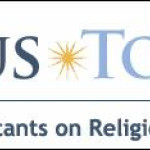- Industry: Religion
- Number of terms: 4401
- Number of blossaries: 0
- Company Profile:
The Ontario Consultants on Religious Tolerance or ORCT attempts to serve the people of the United States and Canada in these four areas: disseminating accurate religious information, exposing religious fraud, hatred and misinformation, disseminating information on dozens of "hot" religious topics, ...
An relationship in which an experienced Christian, a shepherd, is selected to supervise a new convert. In some denominations, the senior person closely controls almost every aspect of the convert's life. This has major potential to generate spiritual abuse.
Industry:Religion
This is the theological concept that, because the vast majority of Jews in the first century CE did not accept Jesus as their Messiah, God unilaterally terminated his covenants with the Jewish people and transferred them to the followers of Christianity. It relegates Judaism to an inferior position and recognizes Christianity as the 'true' or 'spiritual' Israel. This concept was first developed by Justin Martyr (circa 100 to 165 CE) and Irenaeus of Lyon (circa 130 to 200 CE). It was largely accepted within the church by the 4th century. It has led to a great deal of persecution of Jews by Christians. Although the Catholic Church reversed its stance on replacement theology in the 20th century, many conservative Protestant groups still believe in this principle. In opposition to replacement theology is the dual covenant theory that God's covenants in the Hebrew Scriptures (Old Testament) are still in place.
Industry:Religion
A Buddhist term that refers to one's rebirth after death on earth or one of the lower realms.
Industry:Religion
From the Latin "rapio" which means to snatch. The belief held by many conservative Protestants that Christ will soon appear in the sky and that all of saved individuals, both living and dead, will rise to meet him. Although this belief is supported by some passages from the Christian scriptures (New Testament), it is not shared by many mainline and liberal Christians.
Industry:Religion
The philosophical system created by August Comte (1798'1857) in France. The only truths are those that can conclude by direct observation or by experimentation. It lowers theology, religious revelation and metaphysics to the level of mere speculation.
Industry:Religion
The belief that we are now living in the Millennium period. After this is over, Jesus will return to earth and conduct the final judgment. This was the near universal belief system of Protestants during the 17th and 18th century. It has since been replaced by Pre-millennialism among conservative Christians.
Industry:Religion
The practice whereby a man has more than one wife. This was seen in many places in the Bible. It is still practiced in predominately Muslim countries where a man can generally be married to up to four wives -- but only if he can treat them equally. This is seen in many Western U.S. states among some fundamentalist Mormon denominations. It is legal in British Columbia, Canada.
Industry:Religion
A long journey or search of great moral significance. Sometimes, it is a journey to a shrine of personal significance. Pilgrims -- individuals who engage in a pilgrimage -- are found in many different religions.
Industry:Religion
A 17th and 18th century approach to the belief in God derived from observations of physics in nature. William Derhamwrote a book with the same name in 1711. He said: "Let us ransack all the globe, let us with the greatest accuracy inspect every part thereof...pry into them with all our microscopes and most exquisite instruments, till we find them to bear testimony to their infinite workman."
Industry:Religion
A five pointed star. Wiccans and other Neopagans are the main North American groups who use a pentagram as a religious symbol. They orient the star with one point upwards, two downwards. The points of the star are often interpreted to refer to earth, air, water, fire and spirit. Satanists, who are numerically much smaller group than Wiccans, sometimes use an inverted pentagram.
Industry:Religion
